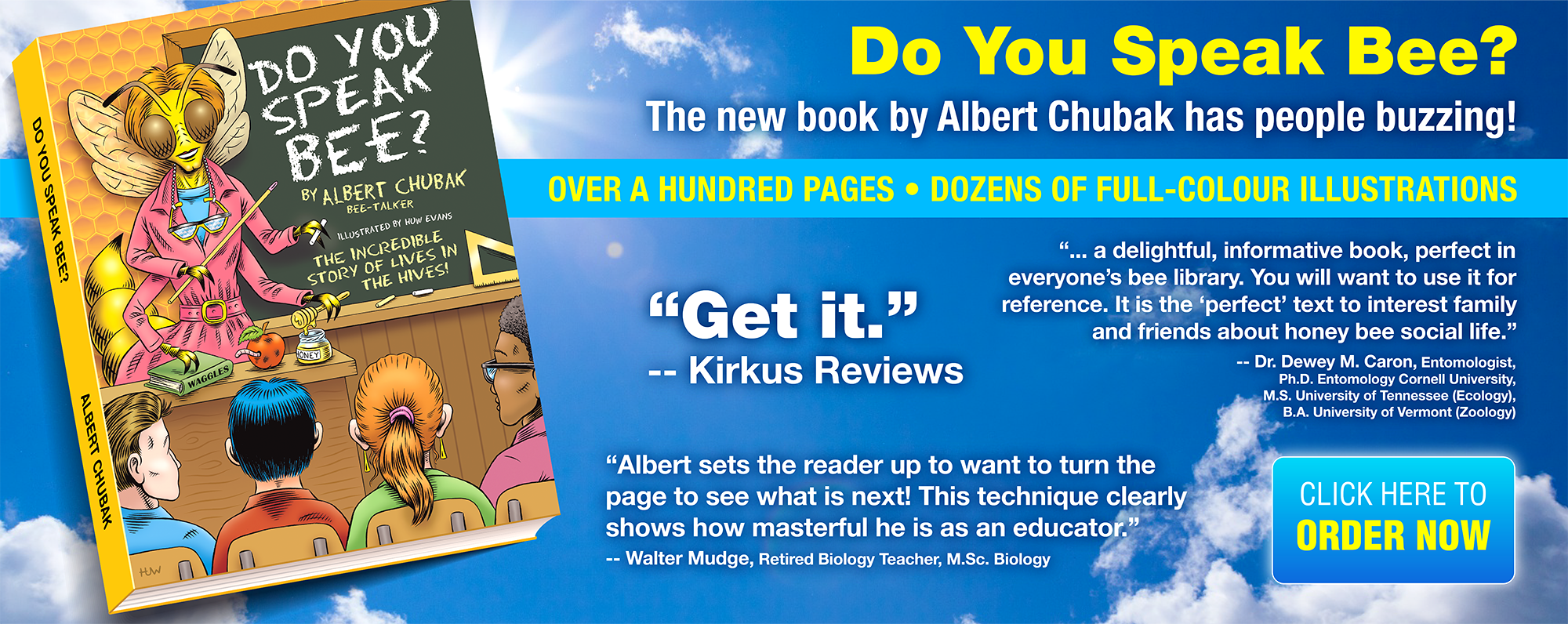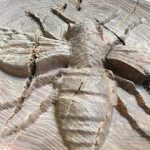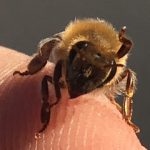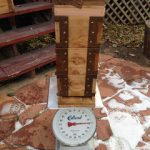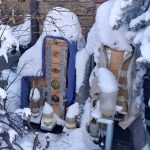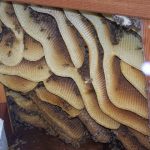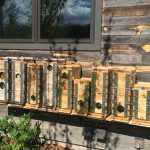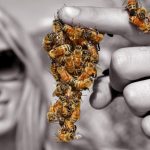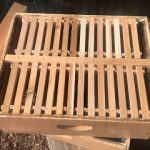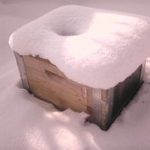A honey bee by Eco Bee Box Thoughts to consider…when raising bees. Note we didn’t say when making honey. Honey is the by-product of a healthy active colony. A question we regularly hear is “my bees aren’t drawing out new comb”, “they are not expanding”, “they must not like their hive”, “they are doing nothing”, “it has been a month and I just raised a queen and they haven’t expanded”, “when do I add another box”. The questions are similar and require in most cases a simple answer of be patient. Honeycomb on a mini frame by Eco Bee Box […]
Continue readingLorenzo Langstroth has Taught more than Beekeeping – 2018
A few ageless lessons of life and realities of a US Patent. As a beekeeper and a small-time historian, lessons have appeared regarding the downfalls in beekeeping regarding methods, tools, equipment, & manufacturing. It doesn’t take much to see, as a new idea is presented at a conference one year is reproduced by many from around the world the following year. Patents are not what they pretend to be. A patent is synonymous with protection, right? First, it takes many thousands of dollars to patent an invention in our modern day only to have another modify it slightly and poof another […]
Continue readingChallenges Facing our Honey Bees Today – 2017
Had a comment come in today about challenges our bees are facing and if “man” is the instigator of the challenges we now face? Well…this is our reply. The problems we and bees are facing today: we have inadvertently permitted the global migration of invasive bee colony pests from around the globe of which the European honey bees have little resistance too. we have lowered the life span of the queen from about 5 years to about 1 year in the last 100 years, with most beekeepers unable to rear their own queens. we have added complex pesticides and mono crops for bees […]
Continue readingThe Art of Winter Candy Feeding of Honey Bees – 2017
Candy board feeding of bees in winter is a valuable tool in extending the life of the colony to the spring nectar flow. Winter inspection without opening the hive. Weight tells how much the colony has consumed. A challenge for most beekeepers is “how much honey do I take from them, and did I take too much?” A couple years back Bella Donna from Arizona showed how she filled drawn comb with candy instead of either leaving it empty or removing it. Adding a candy board horizontally on top a hive is a plus for extending the life of a colony […]
Continue readingChallenges & Tips for Wintering Honey Bees – 2017
The season of winter hive preparation has begun. Understanding the wintering process can be a challenge for many beekeepers. It isn’t a simple one-size-fits-all scenario. Here are a few thoughts about wintering honey bees: Bees need winter access to outside for cleansing flights If moisture inside the hive rises during the winter months bees will die Place your hive in a spot with full sun and protection from wind. The wind that blows into the entrance will kill bees An upper entrance can be blocked with propolis, which helps retain heat and control their inside atmosphere but is an emergency exit […]
Continue readingRules for Live Bee Removals and Cut-Outs – 2016
Removal in Cottonwood Heights Utah by Albert Chubak Rule 1: If pollen isn’t coming in… then either scouts are visiting, and they can visit in large numbers, or it is being robbed. Rule 2: Don’t seal up or spray a beehive unless you know the specifics of what is going on inside. If you do either of these, and there was an active colony inside, the bees will look for another way to get outside – which is usually through the inside of the home. Rule 3: If bees have been there before, they either never left or are returning […]
Continue reading“Training Wheels” A Beehive for Beginning Beekeeping – 2018
Up until recently the beekeeping industry had a “one size fits all” beehive: a commercially sized beehive that everyone had to use and learn with, without any thought of the needs of the aspiring beekeeper. Needs for individual aspiring beekeepers vary and include age restrictions, weight limitations, area availability, pollination gardens solely for beauty, apitherapy, gardeners with pollination needs, those wanting to dabble in a new hobby but are on the fence, and the list goes on. There are many reasons to keep bees but only one hive was available, a huge massively packed box with almost 10,000 bees initially. […]
Continue readingBeekeeping Terminology – Festooning – 2017
Festooning is a term used in beekeeping. Thousands of bees can be utilized in a single festooning event. Bees festoon in a temporary swarming event and inside the beehive when forming structures made of beeswax. Inside the beehive bees form a scaffold by holding to each other. This act of festooning allows house bees to climb on hanging bees to construct wax comb structures. This photo shows bees festooning off of Katelin Radke’s finger. Honey Bees Festooning on Katlin’s Finger by Eco Bee Box
Continue readingWhy Use the Honeycomb Boxes for Brood? – 2018
A while back we were asked, “Why do you use the honeycomb box for brood?” Our question back was “Once you have bees in your single box beehive (Langstroth deep), what can you do with it?” Funny, the comment was “Then I raise bees.” Our thoughts were, actually, you sit and wait and wait and wait. Then we asked, “How long before that Langstroth deep box is full?” The answer was, “It depends.” This was getting good, so we asked: “What do you do when the first Langstroth deep beehive box is full?” Again an expected answer, “I add another […]
Continue readingWintering Honey Bees Begins in Summer – 2019
Each spring season begins sadly with reports of failed winter colonies. It can be disheartening to visit an apiary in hopes of a successful winter only to find a dead colony after a dead colony. Wintering bees begin the summer prior, some even claim as early as the spring prior especially if it starts from a package. Understanding summer obstacles is vital for the long-term life of a colony. One huge obstacle is a dearth. A dearth is a time of famine for a bee colony where nectar and pollen may be in limited supply. Limited supplies of forage may […]
Continue reading
